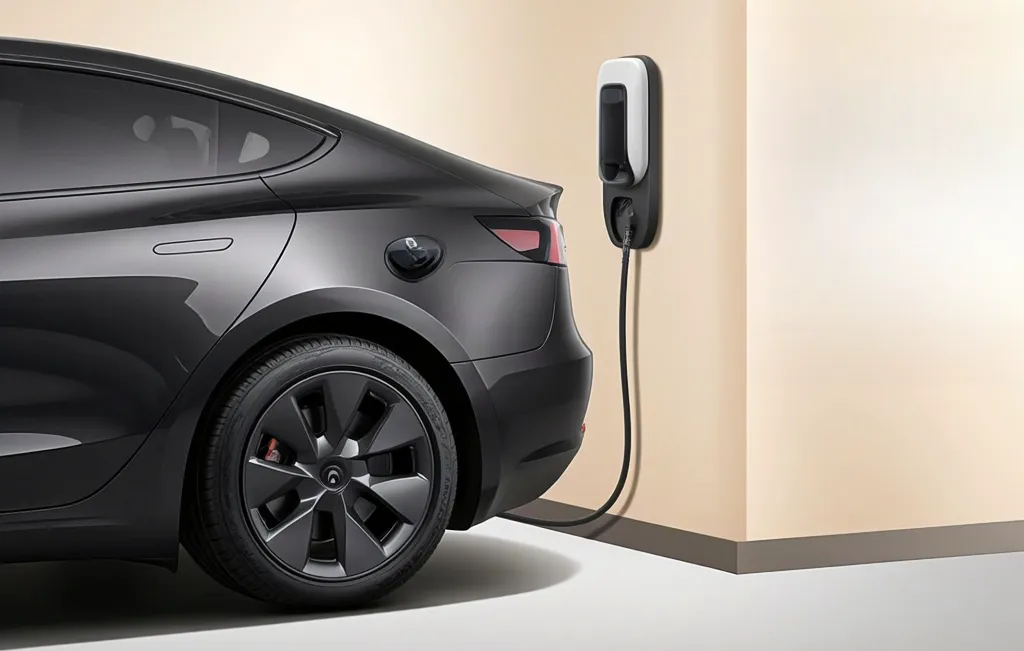New EV Charging Tech in 2025: Revolutionizing Electric Car Range
In 2025, the electric vehicle (EV) landscape is set to undergo a transformative shift, driven by groundbreaking advancements in EV charging technology. According to BloombergNEF, global EV sales are projected to reach 20 million units by 2025, a significant leap from previous years. This surge is propelled by innovations that promise to revolutionize electric car range and charging times, making EVs a more viable option for everyday users. In this article, we will explore the latest advancements in EV charging technology, highlight key players in the industry, and provide practical tips for potential EV buyers. Whether you’re an EV enthusiast or a prospective buyer, understanding these innovations will help you make informed decisions in this rapidly evolving market.
Cutting-Edge Charging Technologies
Ultra-Fast Charging Networks
One of the most significant developments in EV charging technology is the emergence of ultra-fast charging networks. Companies like Tesla, Electrify America, and Ionity are leading the charge with stations offering speeds of 350 kW and beyond. These networks can charge an EV up to 80% in less than 20 minutes, drastically reducing downtime. By 2025, expect to see these ultra-fast chargers installed along major highways, making long-distance travel more feasible than ever.
- Tesla’s Supercharger V4: Set to debut in 2025, Tesla’s latest iteration promises even faster charging speeds and greater energy efficiency.
- Ionity’s Expansion: With plans to increase their European charging station count by 50%, Ionity is paving the way for seamless cross-border EV travel.
Wireless Charging Solutions
Wireless charging is another futuristic technology gaining traction. Imagine parking your EV over a pad and having it charge automatically without plugging in. Companies like WiTricity and Plugless are at the forefront of this innovation. By 2025, wireless charging is expected to become a standard feature in urban areas and at home, eliminating the hassle of cables.
- WiTricity’s Halo: This system can deliver up to 11 kW wirelessly, offering a convenient charging solution for residential and commercial use.
- Plugless Power: Their upcoming models aim to support popular EVs like the Nissan Leaf and Chevrolet Bolt, expanding the accessibility of wireless charging.
The Role of Battery Technology
Solid-State Batteries
As charging technology evolves, so does the battery technology that powers EVs. Solid-state batteries are anticipated to be a game-changer by 2025. These batteries use a solid electrolyte instead of a liquid one, offering higher energy density, faster charging times, and increased safety.
- Toyota’s Pioneering Efforts: Toyota plans to introduce solid-state batteries in its EVs by 2025, promising a range of over 600 miles on a single charge.
- QuantumScape’s Breakthrough: Backed by Volkswagen, QuantumScape is developing solid-state batteries that could significantly reduce charging times to under 15 minutes.
Practical Tips for EV Buyers
How to Choose Your First Electric Car
Selecting the right EV involves considering several factors:
- Range Needs: Determine your daily driving needs. If you often travel long distances, opt for models with a range exceeding 300 miles.
- Charging Infrastructure: Consider the availability of charging stations in your area. Access to fast chargers can significantly impact your EV experience.
- Budget Considerations: While EVs are generally more expensive upfront, consider long-term savings on fuel and maintenance.
Best EVs of 2025
Based on the latest technology and consumer reviews, here are some of the best EVs to watch for in 2025:
- Tesla Model 3: Known for its impressive range and advanced tech features.
- Ford Mustang Mach-E: Offers a blend of performance and practicality.
- Hyundai Ioniq 5: Praised for its design and innovative charging capabilities.
Engaging Conclusion
The advancements in EV charging technology by 2025 are set to redefine the electric car experience, enhancing range and reducing charging times. As these innovations become mainstream, transitioning to an EV will become more appealing and practical for a broader audience. If you’re considering joining the electric revolution, now is an exciting time to explore the options available. What features are you most looking forward to in the next generation of EVs? Share your thoughts in the comments below!
The future of mobility is electric, and with these technological breakthroughs, the journey is just beginning. Stay tuned for more updates as we continue to explore the ever-evolving world of electric vehicles.

